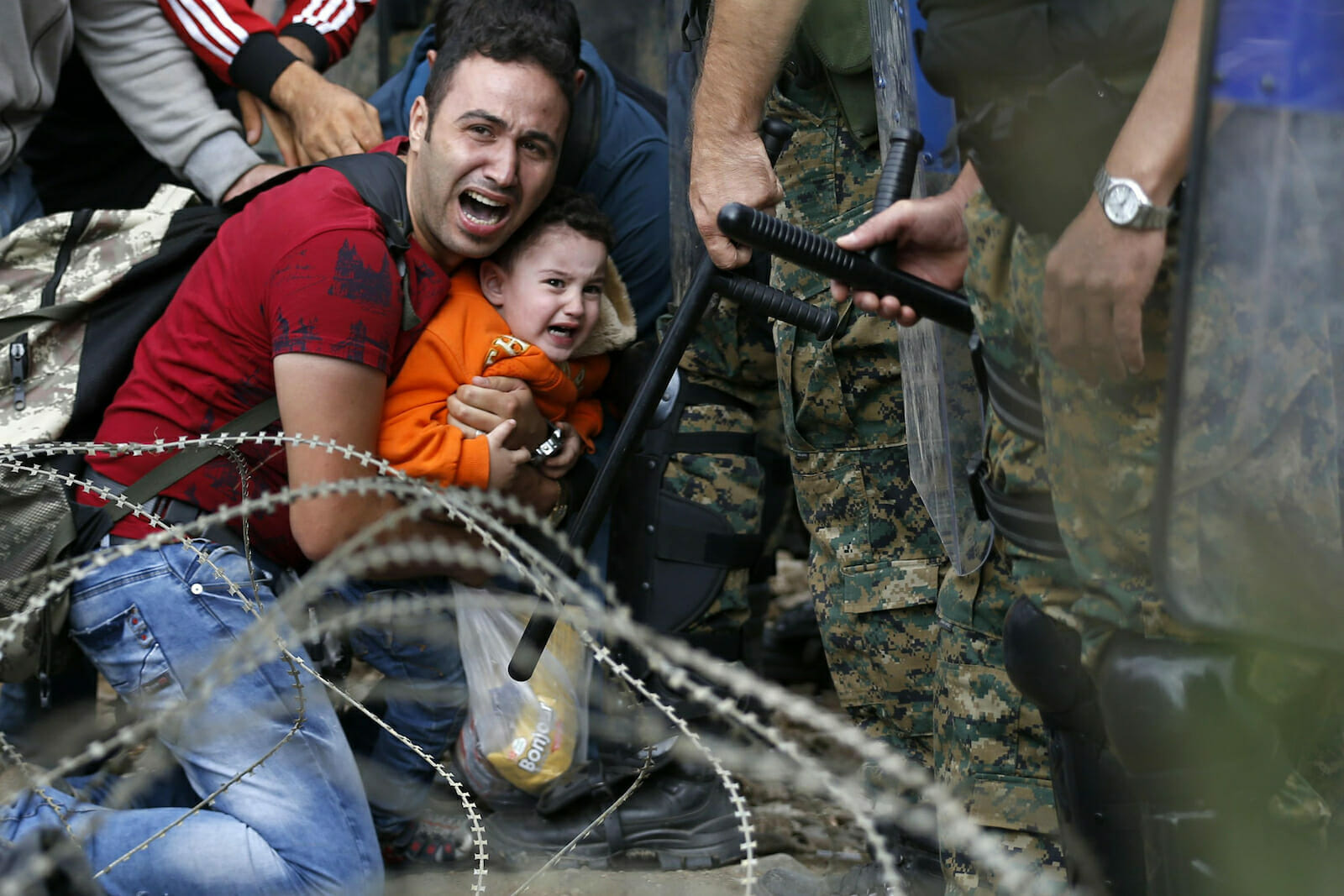
Anxieties Around the Unprecedented Levels of Immigration Contributed to Support for Brexit in 2016: Ronan McCrea
When UK voters went to polls on 23 June 2016 to determine whether the UK should remain a member state of the European Union or leave the bloc, they could hardly predict that the outcome would be an intractable challenge that has not yet been resolved three years after the referendum took place.
Nearly two months after Brexit was supposed to happen, the British people elected candidates to represent them in the European Parliament as Prime Minister Theresa May failed to get her withdrawal agreement approved by Parliament and the country reluctantly remained a European Union member state.
The situation today is immensely complicated and few observers can comprehend why the current mess has emerged. The deadline for the complete withdrawal of the United Kingdom from the European Union has been extended three times, and European Council president, Donald Tusk, said the extra time has given Britain a new opportunity to “revoke article 50 and cancel Brexit altogether.”
The Brexit uncertainty has gravely impacted different aspects of life across the UK and there are fears that the UK’s economy has come to a deadlock as reports from retailers show annual consumer spending is at its weakest since records began in the mid-1990s.
There has been a lot of debate and conjecture over the pros and cons of Brexit. However, polls show the United Kingdom “would reject Brexit if the referendum were held today.” The argument is that the voters were not aware of the economic hardships that Brexit would impose. The Remainers have been lobbying extensively to hold a new referendum. However, a new vote appears to be extremely unlikely.
Intense pressure from the Conservative Party convinced May to step down as the prime minister. On June 7, she resigned as Conservative leader and now, Foreign Secretary Jeremy Hunt and the former mayor of London, and Foreign Secretary, Boris Johnson, are contesting to become the next prime minister.
To discuss latest political developments including the rejection of Theresa May’s Brexit deal and the overall fate of Brexit, I interviewed with Ronan McCrea (@RonanMcCrea), Professor of Constitutional and European Law at the University College London. The following is the text of the interview.
Why did the House of Commons reject Theresa May’s Brexit deal three times? What will be the implications of the UK leaving the European Union without a deal?
There will be severe economic consequences if the UK leaves without a deal. Key arrangements in terms of importing and exporting goods rely on British EU membership and the abolition of tariffs and other restrictions on the free movement of goods and services. British businesses will be severely hit and shortages of key products including medicines and food are possible.
The House of Commons rejected the Withdrawal Agreement for a number of reasons. The main one was the “backstop” which is the commitment by the UK to align the law in Northern Ireland in relation to the free movement of goods and related matters with EU law in order to avoid the imposition of checks on the border between Northern Ireland and the Republic of Ireland. The opposition Labour Party voted against mainly in order to put pressure on the Conservative government but also because it is committed to a much softer form of Brexit than Mrs. May was committed to.
Senior politicians have warned that if the Withdrawal Agreement Bill fails and is not adopted by Parliament, there’s a possibility that Brexit will be canceled entirely. Do you think Theresa May’s successor will be able to deliver Brexit or do you give it a chance that Brexit will not come to a conclusion altogether?
Mrs. May’s likely successor has said he will ensure the UK leaves the EU by 31 October even if this means leaving with no deal. Whether he would be able to resist the pressure from business and others concerned at the disastrous economic impact this would have is unclear. It is also possible that moderate MPs within the Conservative Party would rebel and bring down the government rather than allow a no deal to go ahead. If Labour won the resulting election, a second referendum is likely meaning Brexit may not go ahead. However, in the absence of unanimous agreement of the remaining EU states, Brexit will happen automatically on 31 October.
One of the major sticking points in the UK-EU talks over the Brexit deal is the Irish backstop. Both sides have committed to avoiding the return of a “hard border” between Northern Ireland and the Republic of Ireland. So, where does the disagreement stem from?
The Irish government and the EU insist that the 1998 peace agreement in Northern Ireland requires that the open border between Northern Ireland, which is part of the UK, and the Republic of Ireland be retained. This means that the UK needs to guarantee that the law in Northern Ireland will follow EU law to the extent needed to avoid the imposition of border checks on goods. In order to avoid isolating Northern Ireland from the rest of the UK, the British got the EU to agree to a proposal that would keep the whole UK in a Customs Union with the EU if there is no agreement at the end of the EU-UK negotiations. Many UK politicians object to this as they feel it ties the UK into following EU law in important matters indefinitely.
Is it possible to bridge the gaps and make up the social divides that have emerged as a result of the Brexit vote? Is British society more divided today than in June 2016 when the majority of Brits decided that their country should leave the EU?
There has been a radicalization on both sides. Remainers who were initially inclined to accept the result now reject any form of Brexit and want a second referendum; leavers now regard any but the most severe form of Brexit as incompatible with the referendum result. Many voters now identify as pro or anti-EU more strongly than they identify with the party they support.
The UN special rapporteur on racism, E. Tendayi Achiume, said in May that explicit racial, ethnic and religious intolerance have grown following the Brexit vote and that racially motivated hate crimes surged significantly in the aftermath of the June 2016 referendum. What is the link between the United Kingdom’s departure from the European Union and the growth of religious and racial bigotry in British society?
Anxieties around the historically unprecedented levels of immigration did contribute to support for Brexit in 2016. Adjusting to such significant social change was always likely to bring difficulties. Political rhetoric has become more polarized since 2016 but, overall, the UK is a society in which people from a wide range of backgrounds and beliefs coexist in a harmonious way.
Do you think the UK is prepared to adopt migration policies that ensure that EU and non-EU migrants are not subject to racial discrimination once the UK is not part of the Union anymore?
The migration policies of every country in the world are in some ways racially discriminatory as they favour those who belong to the home nation over others. UK law currently prohibits racial discrimination in a wide range of areas and will continue to do so after Brexit.

